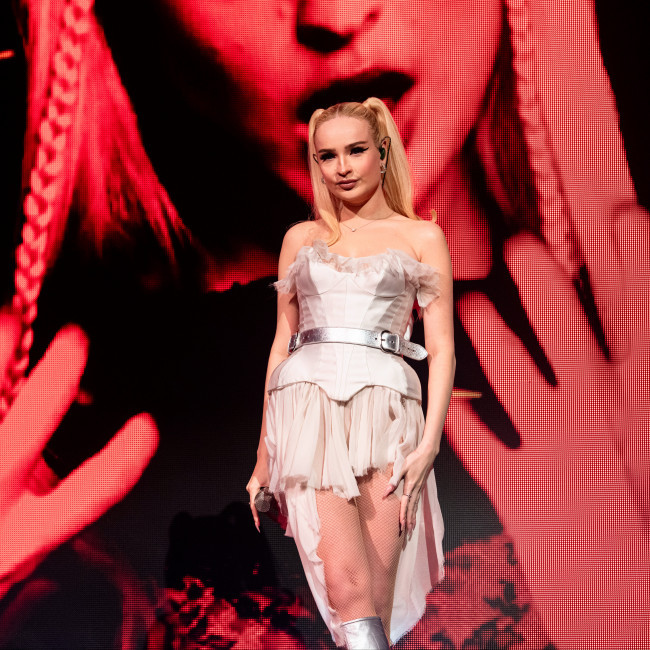Kim Petras has cancelled her summer 2024 festival shows amid “some health issues and under medical advice.”
The 31-year-old singer did not disclose her health problems but has vowed to make it up to fans and “be back better than ever very soon.”
The festivals she was due to appear at include Primavera Sound, Mighty Hoopla, Primavera Porto and Capitol Hill Block Party.
She announced on X: “My buns, I’m devastated to be writing this but I’m going through some health issues and under medical advice I have had to make the hard decision to not perform at festivals this summer. I love u so much and I’ll make it up to you and be back better than ever very soon. (sic)”
Meanwhile, Kim was among 200 music stars to call for the “predatory” use of generative AI in the music industry to be stopped.
An open letter – which was also signed by the likes of Billie Eilish, Sam Smith, Jon Bon Jovi, Nicki Minaj and Katy Perry – was sent to machine-learning software companies, which called for tighter regulations on the technology in the industry to “protect against the predatory use of AI to steal professional artists’ voices and likenesses, violate creators’ rights, and destroy the music ecosystem.”
The letter, which was produced by the not-for-profit organisation Artist Rights Alliance (ARA), read: “Make no mistake: we believe that, when used responsibly, AI has enormous potential to advance human creativity and in a manner that enables the development and growth of new and exciting experiences for music fans everywhere.
“Unfortunately, some platforms and developers are employing AI to sabotage creativity and undermine artists, songwriters, musicians and rightsholders. When used irresponsibly, A.I. poses enormous threats to our ability to protect our privacy, our identities, our music and our livelihoods.
“Some of the biggest and most powerful companies are, without permission, using our work to train AI models. These efforts are directly aimed at replacing the work of human artists with massive quantities of A.I.-created ‘sounds’ and ‘images’ that substantially dilute the royalty pools that are paid out to artists. For many working musicians, artists and songwriters who are just trying to make ends meet, this would be catastrophic.”
The organisation warned that unregulated machine-learning software would “devalue” the work of musicians.
The letter continued: “Unchecked, AI will set in motion a race to the bottom that will degrade the value of our work and prevent us from being fairly compensated for it.
“This assault on human creativity must be stopped. We must protect against the predatory use of AI to steal professional artists’ voices and likeness, violate creators’ rights, and destroy the music ecosystem.”

